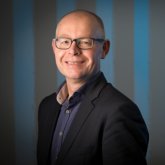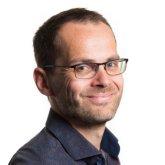EngD Position: Developing an Urban Mining design & matchmaking methodology
The transition towards a circular built environment requires new digital approaches through which demolition and design firms can close material loops. We offer an Engineering Doctorate (EngD) position that contributes to that end. As EngD candidate in a large project, you will play a pivotal role in developing an innovative urban mining methodology that connects demolition and design practices. By leveraging your expertise, creativity and problem-solving skills, you help bridging the gap between reuse supply and demand. Join us in tackling the challenges of circular construction and redefining the future built environment – your journey begins here!
Renovating existing constructions in a circular manner challenges the industry to revisit their conventional design and demolition practices. New possibilities emerge when treating the existing built environment as an urban mine from which valuable materials can be ‘mined’ or ‘harvested’ for future reuse. Using such materials essentially flips the design process. Designers will need to base their design ideas and proposals on the characteristics of any reusable materials including their dimensions, connection types and other properties. Finding new matches for existing materials is further complicated as the materials from (selective) demolition projects may not become available at the right time or location. The challenge of this Engineering Doctorate project is, therefore, to make sense of these complexities by developing an urban mining design & matchmaking methodology.
The envisioned methodology integrates both managerial and engineering solutions to foster the uptake of reuse. You will follow a design science research methodology to iteratively: identify information gaps between demolition and design firms, develop a simple parametric matchmaking tool, evaluate it within selected case-studies and communicate urban mining guidelines. The outcome supports both demolition and design firms in boosting the uptake of reuse.
This two-year EngD project is part of the NWO funded PACER project that contributes to circular and emission-free renovation with new forms of collaboration, digitisation and integration. You will be supervised by a team consisting of dr.ir. Marc van den Berg (UT), dr. Hans Voordijk (UT), dr. Andreas Hartmann (UT) and dr. Torsten Schröder (TU Eindhoven). Becoming part of a wider research consortium, you will also get the opportunity to collaborate with other researchers from (among others) TU Eindhoven and Utrecht University. The project can start as soon as possible.
Information and application
Please submit your application using the instructions below before 14 February 2025.
Your submission is considered eligible if it includes (only and no less than) the following documents:
• Motivation letter (max. 1 A4) explaining your interest and background knowledge relevant for the project.
• Recent CV (including relevant academic and/or professional experience)
• Transcript of records for both Bachelor’s and Master’s degrees including thesis project titles.
Optional: you may also upload (or link to a web URL) a short video (max. 2 minutes) explaining why you wish to apply for this EngD project.
Please contact Marc van den Berg (m.c.vandenberg@utwente.nl) for any inquiries.
The interviews are scheduled in week 9 (24 feb - 28 feb).
About the organisation
The Faculty of Engineering Technology (ET) engages in education and research of Mechanical Engineering, Civil Engineering and Industrial Design Engineering. We enable society and industry to innovate and create value using efficient, solid and sustainable technology. We are part of a ‘people-first' university of technology, taking our place as an internationally leading center for smart production, processes and devices in five domains: Health Technology, Maintenance, Smart Regions, Smart Industry and Sustainable Resources. Our faculty is home to about 2,900 Bachelor's and Master's students, 550 employees and 150 PhD candidates. Our educational and research programmes are closely connected with UT research institutes Mesa+ Institute, TechMed Center and Digital Society Institute.





